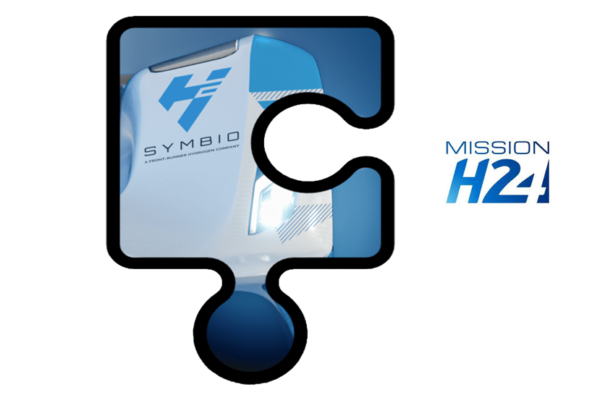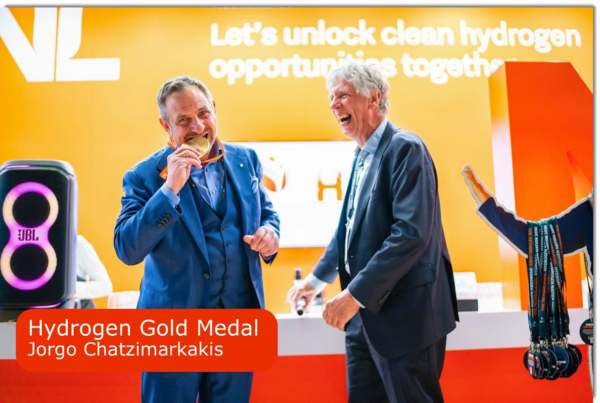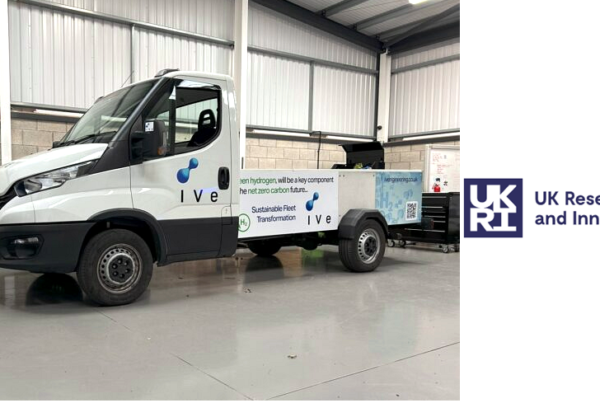
It’s been a bad month for electric truck maker Nikola. Since it announced a surprise management change just days before recalling all of its battery-powered big rigs due to a potential fire risk, its stock has plunged 61%. But amid the turmoil, the company says it is on track to become the first manufacturer to deliver hydrogen fuel cell semis to customers this year.
CEO Steve Girsky explained that the recall, announced Aug. 11, affected all 209 Tre BEV trucks delivered to customers and dealers last year, but a solution is under way. forbes, without elaborating. Production of the model at Nikola’s Coolidge, Arizona plant had already been temporarily halted due to an excess of unsold units, and the company was preparing to build a fuel cell trace on the same assembly line.
“We’ve started the process of pulling the trucks back to work in Coolidge and then it’s about launching the hydrogen trucks,” said Girksi, Nikola’s former president who joined the Phoenix-based company just days before the recall. started running. “With any launch there are challenges and we are tackling them. What this company dreamed of three years ago in terms of launching hydrogen trucks and raising stations is being fulfilled in the next six months. It’s the chicken and the egg coming together.”
Nikola’s survival as a company may depend on its ability to ramp up production of non-polluting hydrogen trucks – which it says will be able to haul at least 500 miles per tank – and ensure that Will ensure that there are stations to provide fuel.
Girsky, a longtime equity analyst and former vice president of General Motors, is reinvigorating Nikola’s business strategy with a broad vision of ousted founder Trevor Milton, who awaits sentencing for securities and wire fraud convictions. Three years ago, the company’s plans also included large-scale production facilities making “green” hydrogen from water and renewable energy, international operations, a pickup truck, electric watercraft and all-terrain and military vehicles. It is now limited to manufacturing and selling hydrogen and battery trucks and setting up fuel stations with partner companies.
Girsky said, “The company had big eyes and a small stomach.” “They wanted to do a lot of things but they didn’t have the money.”
refueling plans
In July, the company was awarded about $42 million from the California Transportation Commission to open six heavy-duty hydrogen stations with partner Volterra, but it will take a few years to get them up and running. So to provide fuel for its first hydrogen trucks headed to California, it will initially use mobile fueling units that can support up to 30 trucks per day.
Girsky was selected this month to become CEO after Michael Loescheller unexpectedly left the role, citing a “family health matter.” Lohscheller, a veteran auto executive, took over the top job in November 2022 for less than a year, replacing Mark Russell.
Deutsche Bank analyst Emmanuel Rosner said, “All of the original members of the management team have left the company, and obviously the recent departure of the new CEO has eased some of the investor jitters about near-term execution and mid-term goals.” has grown to.” stated in a research note.
At the moment, the company’s financial situation has stabilized, Girsky said. forbes, In July, Nikola sold its green hydrogen production facility in Phoenix to Fortescue Future Industries for $24 million and now plans to source fuel from it for its trucks. And this week it raised $125 million in a convertible bond offering that isn’t appealing to investors, including an option to raise up to $200 million more. Those funds will help cover costs related to starting the hydrogen truck business, but will also be needed for recall expenses, which could be “significant,” it said in a filing. Additionally, “there can be no assurance as to when we will be able to resume production of our BEV trucks,” the company said.
The battery truck business’s problems are the latest blow in the difficult three years since Nikola went public, but the company intends to keep building them. Girsky said there is a demand for such vehicles for short-haul trucking routes, such as those from ports in Southern California to distribution centers. However, hydrogen trucks remain its main focus. And it wants to enter that market ahead of bigger rivals like Daimler, Hyundai (which operates Xcient fuel cell trucks at the Port of Oakland) and Toyota (which is making fuel cell systems for truck maker Kenworth).
Girsky said, “I know there are a lot of skeptics out there.” “No one thought this company could engineer a truck and it did. Nobody thought they could build a truck and we are doing it, and nobody thought we could sell a truck and we are doing it. Nobody thought we could make a fuel cell truck and deliver hydrogen at the same time, and we’re going to pull that off.
Source: www.forbes.com
Read the most up to date Fuel Cell and Hydrogen Industry news at FuelCellsWorks




